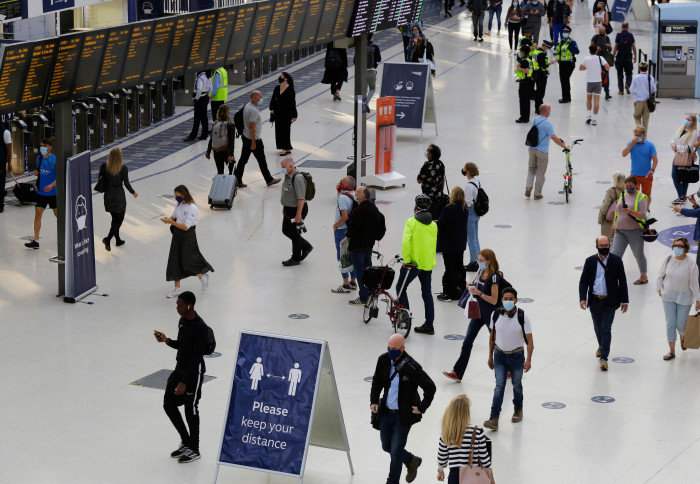Neil Ferguson: Delta variant could cause a substantial third wave of Covid-19

Professor Neil Ferguson says there is a risk of a substantial third wave of COVID-19 infections in the UK, driven by the Delta variant.
"There is a risk of a substantial third wave – we cannot be definitive about the scale of that, it could be substantially lower than the second wave, or it could be of the same order of magnitude." Professor Neil Ferguson Director of MRC-GIDA and the Jameel Institute
The Delta variant, also known as B1.617.2, is thought to be between 30-100% more transmissible than the Alpha variant, also known as B.1.1.7.
Professor Ferguson was speaking at a Science Media Centre briefing with Imperial’s Professor Wendy Barclay and Dr Jeffrey Barrett from the Wellcome Sanger Institute.
Professor Ferguson said: “There is a risk of a substantial third wave – we cannot be definitive about the scale of that, it could be substantially lower than the second wave, or it could be of the same order of magnitude.”
The size of the wave will depend on how effective vaccines are at protecting people against admission to hospital and death, as well as a few other issues, he added.
Prof Ferguson said it was currently difficult to resolve how cases “will translate into hospitalisations, but it’s well within the possibility that we could see a third wave at least comparable in terms of hospitalisations, maybe not as severe, as the second wave.
“Almost certainly I think deaths probably will be lower – the vaccines are having a highly protective effect, cases in hospital now are milder – but it still could be quite worrying.”
Growth of Delta variant
Professor Ferguson said that the Delta variant is growing in nearly all local authority areas, with an estimate for the reproductive value (R number) of the variant put at 1.5-1.6.
The current doubling time for the variant is just under a week, which is 'comparable with what we saw before Christmas', he added.
Professor Ferguson said: "The key issue is how long will it keep on doubling, because we’re starting at a very low level and we have a lot of immunity in the population from vaccination and from people being infected in the past."
Delaying the roadmap
Vaccine efficacy for the second dose against the Delta variant, which was first identified in India, is higher than after one dose.
The next stage of the roadmap out of of lockdown for England will see all restrictions lifted on 21 June.
Professor Ferguson said a delay to the roadmap would allow more people to be vaccinated, and would also have an effect on transmission.
Virologist Professor Barclay, from the Department of Infectious Disease, and lead of the G2P-UK National Virology Consortium, added: "Any delay, from a purely scientific basis, will help because it will allow more time for people to get the second dose.
"Just having it isn't enough, you need about seven days for the vaccine to really boost the immune response back up to the levels that we'd like it to be."
Professor Ferguson said that the upcoming school holidays would reduce contacts in the population slightly and that will counterbalance any increase caused by going to step four of the UK road map'.
Article text (excluding photos or graphics) © Imperial College London.
Photos and graphics subject to third party copyright used with permission or © Imperial College London.
Reporter
Kate Wighton
Communications Division
Stephen Johns
Communications Division